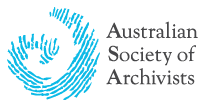Keywords: Recordkeeping or Research infrastructure or data infrastructure or databasing or space data
-

Australian Research Data Commons (ARDC)
The Australian Research Data Commons (ARDC) enables the Australian research community and...
61 training material10 upcoming event (141 past event)Australian Research Data Commons (ARDC) https://ardc.edu.au/ https://dresa.org.au/content_providers/australian-research-data-commons-ardc The Australian Research Data Commons (ARDC) enables the Australian research community and industry access to nationally significant, data intensive digital research infrastructure, platforms, skills and collections of high quality data. As a national research infrastructure provider, the ARDC facilitates partnerships to develop a coherent research environment that enables researchers to find, access, contribute to and effectively use services to maximise research quality and impact. /system/content_providers/images/000/000/001/original/ARDC_Docusign_logo_-_296_x_76px_.png?1627455958 -

Heurist Network
### What is Heurist? Heurist is a comprehensive, flexible data management service built...
1 training material0 upcoming event (15 past event)Heurist Network https://heuristnetwork.org https://dresa.org.au/content_providers/heurist-network ### What is Heurist? Heurist is a comprehensive, flexible data management service built specifically for the Humanities, available both as a free service, or for download to a private server (open source). Its development has been driven and informed by dozens of Humanities research projects. Heurist is a human-centered interface to a MySQL (or other SQL server) database. It operates as a hybrid relational / graph database, hiding all the complexity of SQL, tables, relational joins, relational integrity etc. behind (fairly) simple choices. It’s available on a number of non-commercial web services (free to use) and on private web servers. You can also install it on your own server if you wish. ### What we offer We offer frequent training and collquia for our users, indeed for all Humanities researchers who use digital methods and require a database. Our users are a diverse community of researchers across Australasia, Europe, Asia, Africa and the Americas. We also offer one-on-one support and ad-hoc training for projects who use our technology, or individuals who need a hand gettings started with Humanities databasing. /system/content_providers/images/000/000/018/original/h6logo_intro.png?1653544233 -

Australian Space Data Analysis Facility
Large volumes of geospatial, geophysical and Earth observation data from a range of satellite...
0 upcoming event (2 past event)Australian Space Data Analysis Facility https://www.asdaf.space https://dresa.org.au/content_providers/australian-space-data-analysis-facility Large volumes of geospatial, geophysical and Earth observation data from a range of satellite platforms are now publicly available through national facilities. A range of innovative products and services can be developed based on these data, coupled with an increasing availability of high-resolution commercial satellite data. Our mission is to help Australian SMEs and researchers get the most out of space data. ASDAF will work with you to access the relevant space data, and provide you with the support and expertise you need to move from data to action. /system/content_providers/images/000/000/013/original/Logo_Black_1_%281%29.png?1633923428 -

Australian Society of Archivists
The Australian Society of Archivists Inc. (ASA) is Australia’s peak professional body for...
1 upcoming event (0 past event)Australian Society of Archivists https://archivists.org.au https://dresa.org.au/content_providers/australian-society-of-archivists The Australian Society of Archivists Inc. (ASA) is Australia’s peak professional body for archivists and recordkeepers. We advocate on behalf of archivists, and the archival and recordkeeping profession, and seek to promote the value of archives and records as well as support best practice standards and services. /system/content_providers/images/000/000/022/original/asa_logo.png?1662003490 -

Language Data Commons of Australia (LDaCA)
Australia is a massively multilingual country, in one of the world’s most linguistically diverse...
0 upcoming event (2 past event)Language Data Commons of Australia (LDaCA) https://www.ldaca.edu.au/ https://dresa.org.au/content_providers/language-data-commons-of-australia-ldaca Australia is a massively multilingual country, in one of the world’s most linguistically diverse regions. Significant collections of this intangible cultural heritage have been amassed, including collections of Aboriginal and Torres Strait Islander languages, Australian Englishes, and regional languages of the Pacific, as well as collections important for cyber-security and for emergency communication. Language Data Commons of Australia (LDaCA) is integrating this existing work into a national research infrastructure while also securing at-risk collections and improving access to under-utilised collections. LDaCA is thus ensuring that these invaluable resources will be available for analysis and reuse in the future, and that they will be managed in a culturally, ethically and legally appropriate manner guided by FAIR and CARE principles. The Language Data Commons of Australia (LDaCA) project receives investment from the Australian Research Data Commons (ARDC) through its HASS and Indigenous Research Data Commons program. The ARDC is funded by the National Collaborative Research Infrastructure Strategy (NCRIS). /system/content_providers/images/000/000/041/original/logo.jpg?1724905018 -

Astronomy Data And Computing Services (ADACS)
Our Vision is to provide astronomy-focused training, support and expertise to allow astronomers...
Astronomy Data And Computing Services (ADACS) https://www.adacs.org.au https://dresa.org.au/content_providers/astronomy-data-and-computing-services-adacs Our Vision is to provide astronomy-focused training, support and expertise to allow astronomers to maximise the scientific return from data and computing infrastructure. ADACS is delivered jointly by Swinburne University of Technology, Curtin University, and Macquarie University. ADACS is funded under Astronomy National Collaborative Research Infrastructure Strategy (NCRIS) Program via Astronomy Australia Ltd (AAL). /system/content_providers/images/000/000/033/original/ADACSLogo.png?1708671870